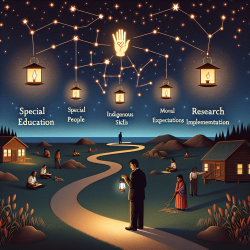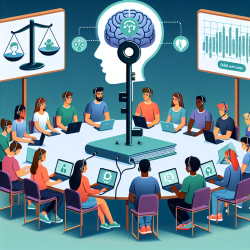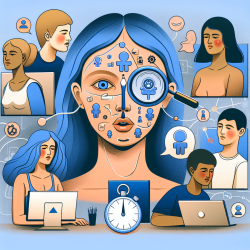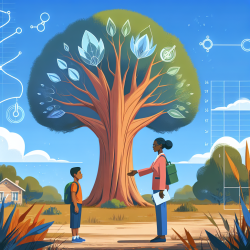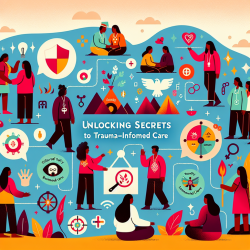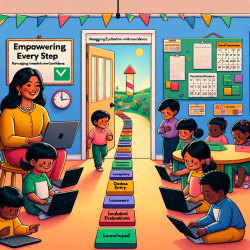Understanding Moral Expectations: A Pathway to Improved Practice
In the realm of special education, practitioners often face the challenge of addressing diverse cultural backgrounds and historical contexts. The research article titled Non-Indigenous Canadians’ and Americans’ moral expectations of Indigenous peoples in light of the negative impacts of the Indian Residential Schools provides a profound exploration of how non-Indigenous individuals perceive Indigenous peoples, particularly in the context of historical trauma.
This research highlights the intricate dynamics between historical victimization and contemporary moral expectations. It reveals how non-Indigenous Canadians and Americans perceive Indigenous peoples as having derived psychological benefits from their experiences, which in turn influences the moral obligations they are expected to uphold. Such perceptions are often exacerbated by modern racist attitudes, which can impact how non-Indigenous individuals view the ongoing challenges faced by Indigenous communities.
Key Insights for Practitioners
For practitioners in the field of special education, understanding these dynamics is crucial. Here are some key insights from the research that can be implemented to improve practice:
- Recognize Historical Context: Acknowledge the historical trauma experienced by Indigenous peoples due to the Indian Residential Schools. Understanding this context is essential for creating a supportive and empathetic educational environment.
- Challenge Modern Racism: Be aware of the subtle forms of racism that can influence perceptions and interactions with Indigenous students and families. Actively work to challenge these biases in educational settings.
- Promote Cultural Sensitivity: Encourage cultural sensitivity and awareness among educators and staff. This includes understanding the unique cultural identities and traditions of Indigenous students.
- Foster Open Dialogue: Create spaces for open dialogue with Indigenous communities. Engage with parents and community leaders to better understand their perspectives and needs.
- Support Indigenous Strengths: Highlight and support the strengths and resilience of Indigenous students. Recognize their achievements and contributions to the school community.
Encouraging Further Research
The findings from this research also underscore the importance of ongoing research and reflection. Practitioners are encouraged to delve deeper into the complexities of historical trauma and its impact on moral expectations. By doing so, they can better support Indigenous students and foster an inclusive educational environment.
To read the original research paper, please follow this link: Non-Indigenous Canadians’ and Americans’ moral expectations of Indigenous peoples in light of the negative impacts of the Indian Residential Schools.
Conclusion
Understanding the moral expectations placed on Indigenous peoples and the historical contexts that shape these perceptions is vital for practitioners in special education. By implementing the insights from this research, educators can create a more equitable and supportive environment for Indigenous students, ultimately contributing to their academic and personal success.
